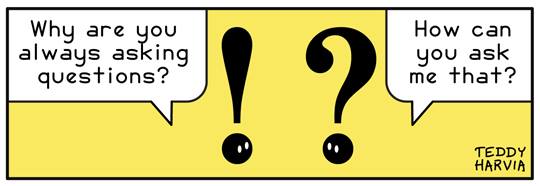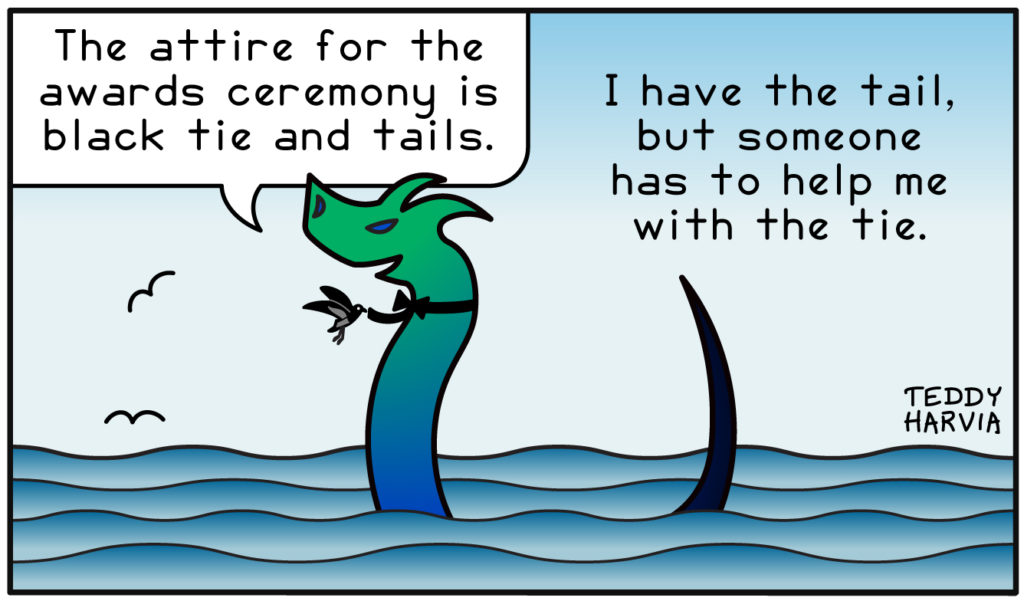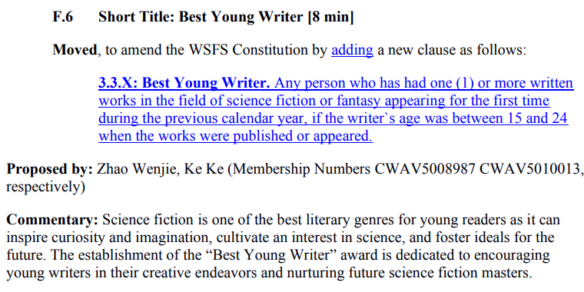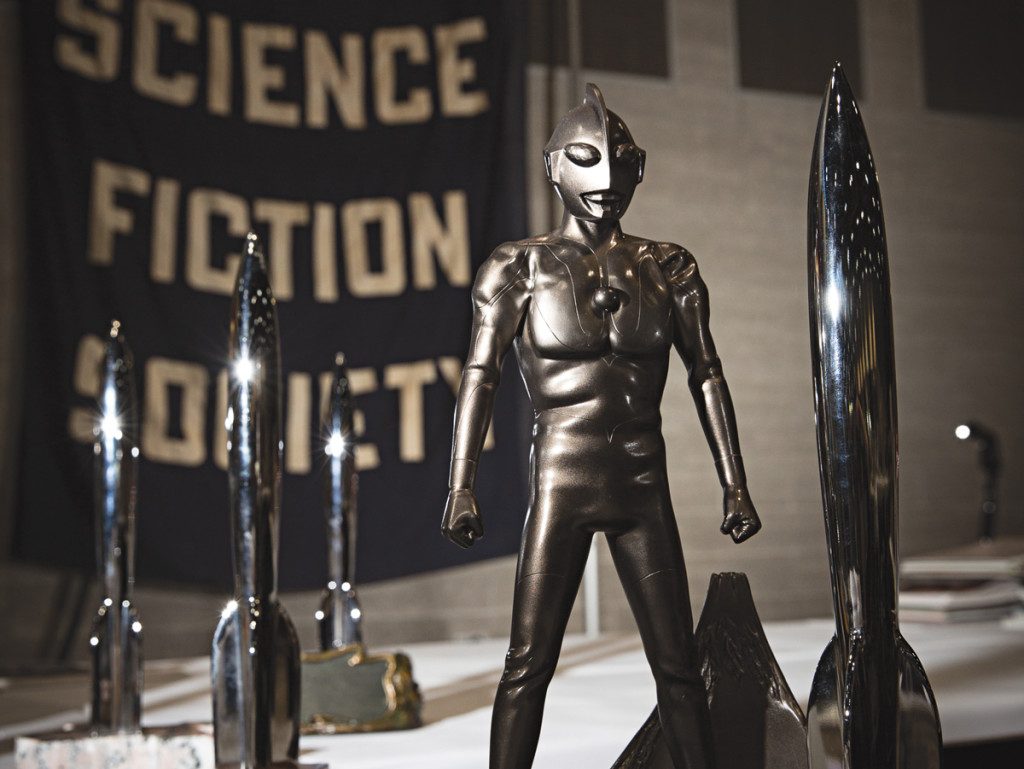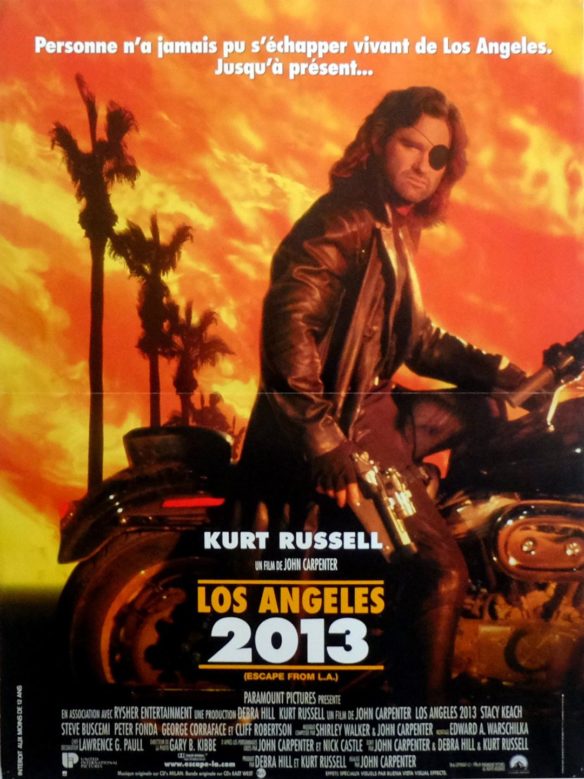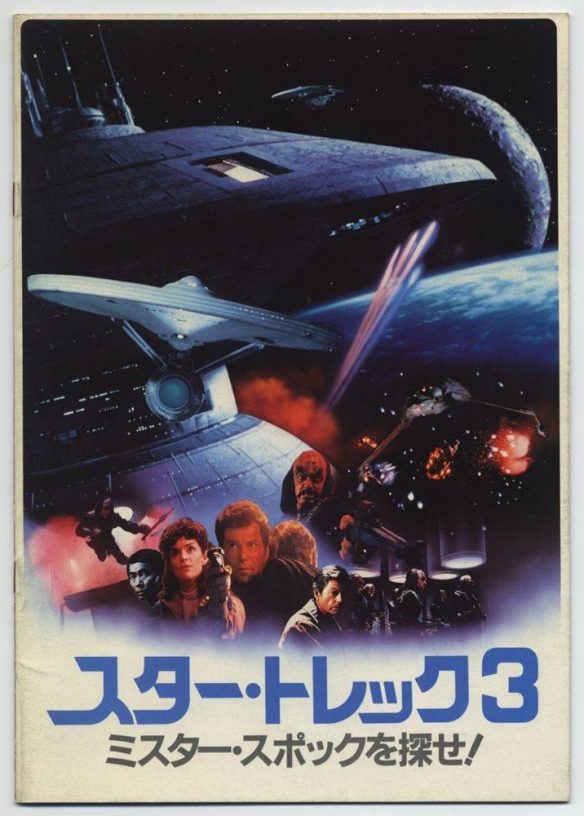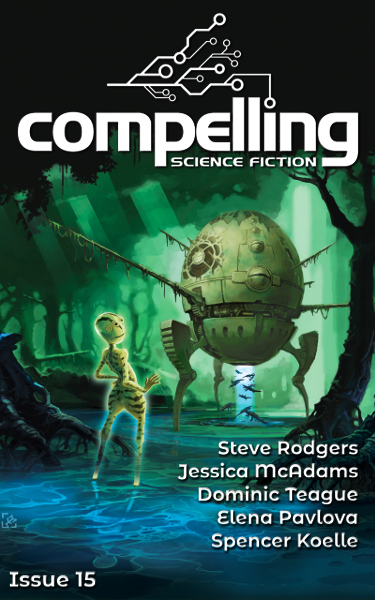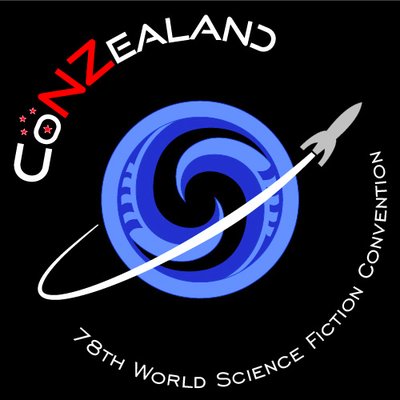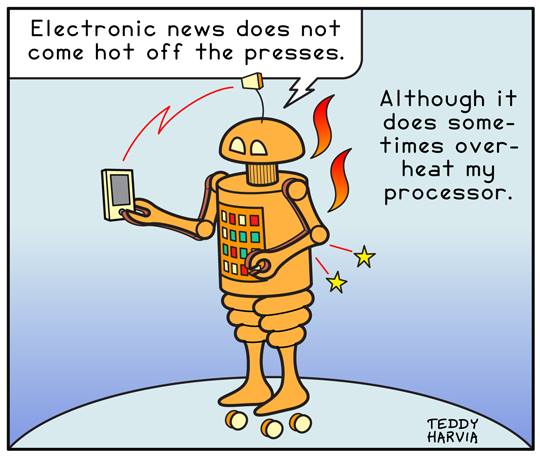(1) THREE MAJOR PROZINES CHANGE OWNERSHIP. Jason Sanford today reported “Asimov’s, Analog and F&SF purchased by new owner” on Patreon.
…The new owner of the magazines is Steven Salpeter and a group of investors. Salpeter is the president of literary and IP development at Assemble Media and previously worked as a literary agent for Curtis Brown.….
(2) ASTOUNDING AWARD’S FUTURE? Following the report that Asimov’s, Analog and F&SF have been purchased by a new owner, John Scalzi speculated about the fate of the Astounding Award for Best New Writer. Although voting is administered by the Worldcon, the Astounding Award belongs to Dell Magazines, publisher of Analog prior to this sale. Will Analog’s new owners continue the sponsorship? John Scalzi volunteered a landing place if one is needed in a post at Whatever:
If the new owners of Asimov’s and Analog don’t want to take sponsorship of the Astounding Award (or the award is not otherwise folded into the responsibilities of WSFS/the individual Worldcons), we’ll take it on. The ideal plan would be for the Scalzi Family Foundation to act as a bridge sponsor while we set up an endowment that would allow the Astounding Award to be run indefinitely.
(3) EISNER HALL OF FAME INDUCTEES. Comic-Con International has announced 21 creators and industry figures who will be inducted into the Eisner Awards Hall of Fame this year.
In addition to these choices, voters in the comics industry will elect 6 persons from a group of 18 nominees proposed by the judges. Those nominees will be announced within the next week, and a ballot will be made available for online voting.
(4) BEST ECOFICTION OF THE YEAR. Violet Lichen imprint editor-in-chief, Marissa van Uden has extended the call for submissions deadline for ECO24: The Year’s Best Speculative Ecofiction. She’s seeking reprint submissions from editors, publishers, and authors.
We’ve received more than 150 stories nominated by publishers, editors, and authors so far, and the range of stories, ideas, and perspectives has been so wonderful to read. As this is our first year of the anthology and our launch happened so quickly, we’ve decided to extend the submissions window out to Monday, March 17, to ensure that everyone publishing ecofiction gets a chance to submit….
…Ecofiction engages with some of the most urgent issues facing us today and also looks ahead to the possibilities of the future. Even when dealing with dark or tragic themes, ecofiction stories are expressions of our human connection to the most beautiful planet we know, and to all of earthlife….
(5) BOOK WITHIN A BOOK. [Item by SF Concatenation’s Jonathan Cowie.] BBC Radio 4 working weekday Women’s Hour had a second half (35 minutes in) largely devoted to two SF works. The first was a play, a re-imagining of the Greek tragedy Oedipus but set in a dystopic, near-future, climate drought-ridden future…
And then the Nigerian-American SF author Nnedi Okorafor who was discussing her latest book Death of the Author (out from Gollancz). This is a sweeping story about a writer of a science fiction novel that becomes a global phenomenon… at a price. The future of storytelling is here. A book-within-a-book that blends the line between writing and being written. This is at once the tale of a woman on the margins risking everything to be heard and a testament to the power of storytelling to shape the world as we know it… This interview begins 50 minutes in.
Nigerian American science fiction author Nnedi Okorafor’s new book is Death of the Author. It follows the story of Zelu, a novelist who is disabled, unemployed and from a very judgmental family. Nnedi and Nuala talk about the book within her book, success, and the influence on her writing of being an athlete in her earlier years.
You can access the programme here.

(6) SANS AI. “James Cameron will reportedly open Avatar 3 with a title card saying no generative AI was used to make the movie” reports GamesRadar+.
James Cameron has reportedly revealed an anti-AI title card will open up Avatar 3, officially titled Avatar: Fire and Ash. The Oscar-winning director shared the news in a Q&A session in New Zealand attended by Twitter user Josh Harding.
Sharing a picture of Cameron at the event, they wrote: “Such an *incredible* talk. Also, James Cameron revealed that Avatar: Fire and Ash will begin with a title card after the 20th Century and Lightstorm logos that ‘no generative A.I. was used in the making of this movie’.”Cameron has been vocal in the past about his feelings on artificial intelligence, speaking to CTV news in 2023 about AI-written scripts. “I just don’t personally believe that a disembodied mind that’s just regurgitating what other embodied minds have said – about the life that they’ve had, about love, about lying, about fear, about mortality – and just put it all together into a word salad and then regurgitate it,” he told the publication. “I don’t believe that’s ever going to have something that’s going to move an audience. You have to be human to write that. I don’t know anyone that’s even thinking about having AI write a screenplay.”…
(7) IMAGINARY PAPERS. ASU’s Center for Science and the Imagination has published the latest issue of Imaginary Papers, its quarterly newsletter on science fiction worldbuilding, futures thinking, and imagination.
In this issue, Sarah M. Ruiz writes about climate action, allegory, and solidarity in the 2024 film Flow; Libia Brenda writes about Crononauta, the quasi-mythical, short-lived 1964 magazine founded by Alejandro Jodorowsky and René Rebetez; and Rachael Kuintzle reports on a workshop on energy futures hosted by the U.S. National Renewable Energy Laboratory in 2024.
(8) DARK DELICACIES TO CLOSE. SFGate is there when “After 30 years, California’s prince of horror hangs up his jacket”.
On April 5, a beacon for California horror fans will be snuffed out when legacy Los Angeles shop Dark Delicacies closes its doors. “We’ve been open for 30 years, and I could have happily died right here,” laughs co-owner Del Howison, “but my wife Sue wanted to have a life — whatever that is.”
Dark Delicacies is more than just a Southern California storefront selling ghoulish souvenirs. It’s been a destination for film buffs, horror genre diehards and celebrities from across the macabre spectrum for decades, and Howison himself has become a cult attraction for those with a love of Southern California’s darker corners.
The longtime horror curator plans to stay busy until the end. On a recent weekday, Howison is moving about his Burbank shop, taking pictures of vintage Spanish and Italian movie posters to sell online. He occasionally breaks to gesture at the Tiki mugs, shot glasses, board games, playing cards and action figures on the shelves. “We stopped calling them dolls, as guys didn’t like saying they were collecting dolls,” Howison says of his early days in business. “Of course, back then, there was no such thing as a horror convention.”…
(9) UK PAPERS PROTEST AI LEGISLATIVE PROPOSAL. [Item by SF Concatenation’s Jonathan Cowie.] A first this side of the Pond. Irrespective of their political leanings, all the papers came together on Tuesday in a campaign to stop British government proposals (yes, we have daft politicians over here just as you do in the US) to allow artificial intelligence (AI) free access to intellectual property so that it can be trained. This is something that authors have been worried about. “UK newspapers launch campaign against AI copyright plans” in the Wandsworth Times.




Special wraps appeared on Tuesday’s editions of the Daily Express, Daily Mail, The Mirror, the Daily Star, The Sun, and The Times – as well as a number of regional titles – criticising a Government consultation around possible exemptions being added to copyright law for training AI models.
The proposals would allow tech firms to use copyrighted material from creatives and publishers without having to pay or gain a licence, or reimbursing creatives for using their work.
In response, publishers have launched the Make It Fair campaign, which saw newspapers put covers on the outside of their front page – criticising the Government’s consultation – organised by the News Media Association (NMA), and backed by the Society of Editors (SOE).
The message said: “The Government wants to change the UK’s laws to favour big tech platforms so they can use British creative content to power their AI models without our permission or payment. Let’s protect the creative industries – it’s only fair.”…
(10) SF AUTHOR ISHIGURO IS ALSO AGAINST IT. The Bookseller reports “Kazuo Ishiguro urges government to ‘reconsider’ AI ‘opt-out’ plan: ‘No-one believes it will work’”. (Behind a paywall.)
…In a statement shared with the Times, the Klara and the Sun (Faber) author said the country had reached a “fork-in-the-road” moment. “If someone wants to take a book I’ve written and turn it into a TV series, or to print a chapter of it in an anthology, the law clearly states they must first get my permission and pay me,” he said.
“To do otherwise is theft. So why is our government now pushing forward legislation to make the richest, most dominant tech companies in the world exceptions? At the dawn of the AI age, why is it just and fair – why is it sensible — to alter our time-honoured copyright laws to advantage mammoth corporations at the expense of individual writers, musicians, film-makers and artists?”
Ishiguro continued that “no one believes the proposed ‘opt-out’ system will work”, saying this is why “those lobbying on behalf of the tech giants favour it”….
(11) MICHELLE TRACHTENBERG (1985-2025). Actress Michelle Trachtenberg, known especially to fans for playing Dawn Summers in Buffy the Vampire Slayer, has died at the age of 39. According to the Guardian:
…Police sources confirmed her death to both ABC News and the New York Post. There is no cause of death yet known, with police saying on Thursday that the New York Medical Examiner is investigating but no foul play was suspected. She had recently undergone a liver transplant, according to sources….
A successful child actress, her first lead film role was in the comedy adventure Harriet the Spy (1996). Trachtenberg followed the film with a role in Inspector Gadget next to Matthew Broderick. Her role in Buffy the Vampire Slayer came in 2000 and continued til the show ended three years later.
Trachtenberg continued to have an active career after that in non-genre productions.
(12) MEMORY LANE.
[Written by Cat Eldridge.]
Award-Winning Barbara Hambly
Barbara Hambly, one of my favorite writers of horror and mysteries, has won two Lord Ruthven Awards given by the Lord Ruthven Assembly, a group of scholars specializing in vampire literature who are affiliated with the International Association for the Fantastic in the Arts.
(This piece is about her fantasies and mysteries that I’m familiar with. I know she wrote some SF, do comment upon it if so inclined.)
Those Who Hunt in The Night, the first in her excellent John Asher series, won the Locus Award for Best Horror Novel. I think the series, eight long, might be concluded, as the last came out six years ago.
I’m also very impressed of her two novelizations done for one of my favorite TV series, Beauty and the Beast and and Beauty and the Beast: Song of Orpheus as it’s hard to write material off those series that’s worth reading. I’ve read others which very quickly got really mawkish as they overly focus on the relationship, in my opinion of course, of the relationship of Catherine and Vincent to the exclusion of what could a fleshing out of that world. Not her. Wonderful novels!
I’ve not tracked down her three Sherlock Holmes short story pastiches yet.
I listened to Bride of the Rat God, which is the only supernatural fantasy in theSilver Screen historical mystery series, and the next book which was not a fantasy, Scandal in Babylon. There are two more in the series so far. They likewise are not fantasy according to her.
And yes, there’s lots about her writing career I’ve not included here so feel free to tell me what you think I should have mentioned. If anybody has read her Abigail Adams or Benjamin January mystery series, I’d be interested in knowing what you think.
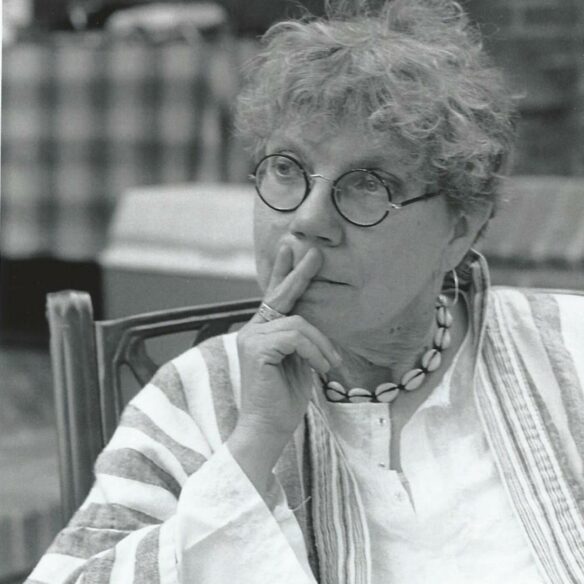
(13) COMICS SECTION.
- Saturday Morning Breakfast Cereal shows an employee enhanced by AI.
- xkcd traces science’s evolving knowledge of RNA.
- Bizarro has a list of new supers.
- Jerry King covers the stages of credentials.
- Tom Gauld relays an invitation.
(14) GOING DARK. Publishers Weekly reports that “Dark Horse Digital Has Shut Down”.
Dark Horse Media has officially shut down Dark Horse Digital as of February 24, 2025, with comics no longer available for purchase on the platform. Online access to the DHD website, however, will still be available at least through this summer, and users can continue to log in and read the comics in their bookshelves.
Effective March 31, 2025, the Dark Horse Comics and Plants vs. Zombies Comics apps for iOS will also no longer be supported.
The move follows downsizing at Dark Horse Media earlier this month, and bookends DHD’s 14-year run.
(15) LOST MARVELS FACTS FOUND. “Fantagraphics Drops Out Of Free Comic Book Day, Pulls ‘Lost Marvels’” – Bleeding Cool has corrected details. With Diamond Comic Distributors having filed Chapter 11 bankruptcy, things are up in the air.
Eric Reynolds from Fantagraphics gets in touch to correct me. He says “Contrary to what you wrote, the comics were actually not printed yet. If they had been, we would have proceeded as planned. But since they weren’t, and given the uncertainty of whether Diamond will even exist come May (or be able to pay us for them), we made the difficult decision to pull the plug while we could. We may still produce the comic this year, bypassing FCBD. Things are, as you can probably understand, a bit fluid these days… The decision was made entirely based on the uncertainty of FCBD and had nothing to do with the Lost Marvels book series itself, which is otherwise proceeding as planned!”
(16) GANG AGLEY. The Guardian’s “Pushing Buttons” newsletter wonders: “Netflix’s games were once its best-kept secret – where did it all go wrong?”.
When Netflix first started adding video games to its huge catalogue of streaming TV shows and films, it did so quietly. In 2021, after releasing an impressive experiment with the idea of interactive film in Black Mirror: Bandersnatch in 2018 and a free Stranger Things game in 2019, Netflix began expanding more fully into interactive entertainment.
The streamer’s gaming offering, for a long time, was its best-kept secret. Whoever was running it really had an eye for quality: award-winningly brilliant and relatively little-known indie games comprised the majority of its catalogue, alongside decent licensed games based on everything from The Queen’s Gambit to the reality dating show Too Hot to Handle. Subscribers could play games such as Before Your Eyes, a brief and touching story about a life cut short; Spiritfarer, about guiding lost souls to rest and Into the Breach, a superb sci-fi strategy game with robots v aliens. The company bought or invested in several game studios known for making critically acclaimed work, including London-based Ustwo games (which was behind Monument Valley). It also established a studio in California to work on blockbuster games, staffed by veteran developers.
But it seems things are changing. That blockbuster studio has been closed, as first reported by Game File, before it could ever release a game. Its latest tie-in game, Squid Game Unleashed, absolutely sucks – it’s constructed around the celebration of slapstick violence, making it a terrible fit for a satirically violent show about capitalist exploitation. Funding a bunch of indie darlings and hiring big-name talent from the likes of Blizzard and Bungie for its game studio gave the impression that Netflix really was keen on becoming a part of the gaming industry, and doing it properly. Now that is very much in question.
The company has made layoffs across its gaming divisions, including at Night Studio – makers of weird-fiction supernatural teen horror series Oxenfree. It has cancelled plans for several forthcoming games that were due to join the service, including indie hits Thirsty Suitors and Don’t Starve Together, and promising-looking hobbit game Tales of the Shire. What’s going on?
(17) GWENDDYDD. [Item by Mark Roth-Whitworth.] Did you know Merlin had a sister? I didn’t… and I know more about the Matter of Britain than all but about 30 people in the US. “Early poems about Merlin portray him as environmentalist, say scholars” in the Guardian.
He is probably most often thought of today as a wizard, a shape-shifter or a mentor to the young King Arthur.
But a detailed re-examination of Myrddin – Merlin – by Welsh scholars suggests he can also be considered an early British environmentalist deeply worried about human interaction with the natural world…
… The researchers have been combing through manuscripts in the National Library of Wales, in Aberystwyth, and also in the 15th-century Red Book of Hergest at Jesus College, Oxford.
They also discovered more about the importance of Merlin’s sister, Gwenddydd. Callander said: “Gwenddydd is a really important figure in Welsh Merlin poetry. She supports Merlin and also appears to be a prophet in her own right.
“We found hundreds of lines of poetry in her voice in dialogue with her brother. Merlin describes her as ‘fair Gwenddydd, summit of dignity’ and ‘refuge of songs’. One of the important aspects of the project is to throw light on this lost female voice from medieval Wales.”
Callander said it was surprising that early Merlin poems had been largely neglected. “These Welsh-language texts had not been edited or translated in full, meaning much material has been missed out.”…
(18) TIME TO VOYAGE TO THE BOTTOM OF THE GIANTS. “Akiva Goldsman To Reimagine 3 Classic Irwin Allen Sci-Fi Titles For TV” – Deadline has the story.
Akiva Goldsman is developing a new Universe at Legendary Television featuring three reimagined Irwin Allen sci-fi TV series. The Oscar-winning writer, producer and director will draw inspiration for the new TV shows from Allen’s catalog and focus on revitalizing Voyage to the Bottom of the Sea, Land of the Giants and The Time Tunnel.
… Legendary Television is focused on the three titles above and not Allen’s second TV series Lost in Space, which aired from 1965-68 on CBS and was reimagined by Legendary TV for a 2018-21 series on Netflix. 20th Century Fox produced all four of the original shows….
[Thanks to Steven French, Kathy Sullivan, Teddy Harvia, Jason Sizemore, Joey Eschrich, Mark Roth-Whitworth, Mike Kennedy, Andrew Porter, John King Tarpinian, Chris Barkley, Cat Eldridge, and SF Concatenation’s Jonathan Cowie for some of these stories. Title credit belongs to File 770 contributing editor of the day Cat Eldridge.]

